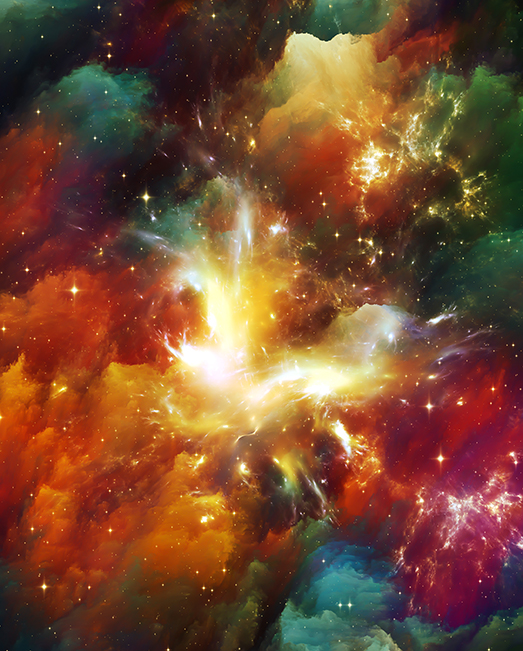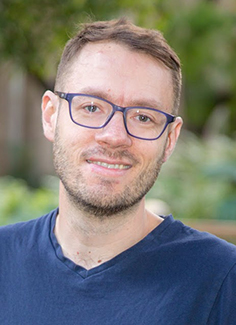Global
Copyright@ Australian Catholic University 1998-2026 | ABN 15 050 192 660 CRICOS registered provider: 00004G | PRV12008
Copyright@ Australian Catholic University 1998-2026 | ABN 15 050 192 660 CRICOS registered provider: 00004G | PRV12008

The existence of time is something that most of us take for granted. Of course it exists. We see time passing every single second as our clocks tick forward, as night turns into day, and as we move from the present into the future, leaving the past behind.
In the worlds of philosophy and physics, however, time is a contentious topic – and this conflict might have implications for our everyday lives.
Philosophical figures like Immanuel Kant and John McTaggart dedicated much thought to the non-existence of time, but neither landed on a comprehensive line of reasoning on the matter.
Meanwhile, in science, the nature of time is fundamental to developing our physical understanding of the world – and yet, its very existence is up for grabs.
“When you look at what has happened in science over the past century or so, you see a sort of chipping away at the notion of time,” says Associate Professor Sam Baron, a researcher with ACU’s Dianoia Institute of Philosophy and author of the book, Out of Time: A Philosophical Study of Timelessness, co-written with Kristie Miller and Jonathan Tallant.
“We’ve gone from a very robust notion of time as a global wave that flows across the entire universe and carries us along, to something more fractured and not at all unified, to more recent theories where the non-existence of time is an open possibility.”
In modern-day physics, the two most prominent theories are general relativity (a big picture theory that is based on the work of Albert Einstein) and quantum mechanics (which deals with the behaviour of matter on an incredibly small scale).
Both of these concepts are compelling in their own right, providing astounding insights into the nature of the physical world.
When it comes to their understanding of time, however, these theories are thought to be incompatible, putting them in conflict with one another.
“There’s nothing I can say here that’s not going to be extremely controversial, because the exact nature of this conflict is itself controversial,” says Associate Professor Baron, who has published widely on topics in metaphysics and philosophy of science.
“One thing that most scientists would agree on is that we’ve arrived at a conceptual stumbling point in our study of the deep nature of reality, and because of this, both theories need to be replaced with a new physical theory.”
So, how do scientists go about resolving this ‘crisis’ in physics?
Enter quantum gravity – an attempt to marry general relativity and quantum mechanics to produce a new theory of physics that dismantles our notion of time.
“One way to get around the problem is to get rid of time and rebuild a mathematical theory that doesn’t include a time parameter,” says Sam Baron, who along with his co-authors discusses various approaches to quantum gravity in Out of Time.
“It all sounds very clear and neat, but the truth is that it’s actually quite murky and complicated to produce a theory of physics without time.”
Among the champions of this new movement is Carlo Rovelli, one of the proponents of loop quantum gravity. He argues that time does not exist at the most fundamental level; rather, it is merely a function of human perception.
Whether or not Rovelli is right is, once again, controversial. While his theory is enthusiastically embraced by some physicists, it is outright dismissed by others.
So, despite centuries of scientific experimentation and philosophical debate, we haven’t yet produced a theory that definitively shows that time exists, or that it doesn’t.
“There’s something about time – I think that’s about as much as we can say for sure – but it’s a little bit unclear exactly what it is,” Associate Professor Baron says.
That being the case, he argues we should not assume that time exists at any level.
“There are definitely people in philosophy who think that some things are completely certain, and I’m not really one of those people,” he says.
“It might turn out that time is one of those things that is part of our perspective, rather than actually part of the deep nature of the world. I’m of the view that we should employ a kind of epistemic humility that says we are open to being wrong about everything we believe.”
Suppose physicists do come up with a theory that proves time does not exist?
Would the world come to a grinding halt? With no past to dwell on, and no future to worry about, would we simply lose all motivation to move forward? To act as positive agents, and do good in the world?
This brings us to one of the central arguments raised by Sam Baron and his colleagues in Out of Time. The researchers posit that, even if physics eliminates time and therefore agency (the capacity and willingness to act), it could leave causation – the idea that one thing can bring about another – intact.
Says Sam Baron: “I think the idea is fairly intuitive, because if I tell you that there’s no such thing as time, you might say, ‘Oh my God, I can’t do anything’, but then I say, ‘Well, all of your actions still cause things. The actions you did in the past influence the actions you do now, and you can still gather evidence from the past to inform the actions that you do in the future’.”
At the core of their argument is a notion that causation can exist without time. This is itself a controversial observation, in that it sets the scene for a philosophical case against the existence of time.
“The idea that causation is essentially a temporal concept is probably one of the most robust assumptions in metaphysics over the last 2000 years,” says Associate Professor Baron, who co-authored the book An Introduction to the Philosophy of Time with Kristie Miller in 2018.
“But I’ve never seen any compelling arguments for why time and causation should go together, and that’s why we’ve raised the idea that maybe they don’t have to, and maybe causation itself can be the more fundamental notion.”
He adds that if science does eliminate the existence of time as we know it, our understanding of the nature of reality would change. But as far as our everyday lives go, it would be mostly business as normal.
“Physics would be propelled into a new era,” he says, “but we could continue to live our lives much as we ever did.”
As Sam Baron and his co-authors conclude in Out of Time: “If we don’t need time to live our lives, then what, in the end, is it good for? Perhaps time … is a metaphysical dangler; a notion that we use to make sense of our lives, but not one that deserves a place in a considered ontology of the world.”
Sam Baron has published widely on the metaphysics and philosophy of science. He is currently investigating the nature of mathematical explanation and its implications for the existence of mathematical objects, as well as the emergence of spacetime within theories of quantum gravity. See his TEDx talk ‘The End of Time’.

Copyright@ Australian Catholic University 1998-2026 | ABN 15 050 192 660 CRICOS registered provider: 00004G | PRV12008